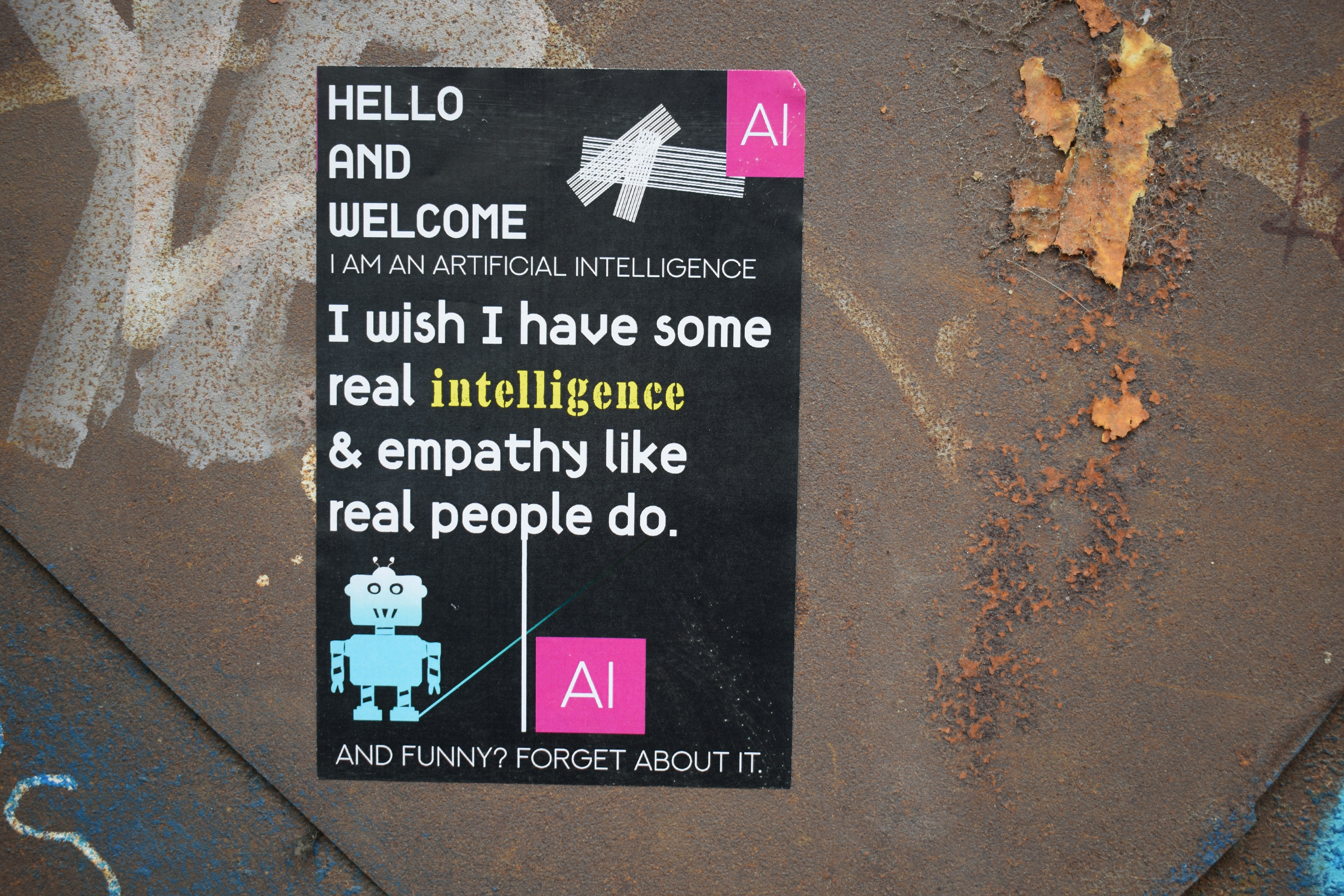The Ethics of Algorithmic Taste: AI's Role in Your Digital World
In today's hyper-connected, tech-savvy society, algorithms curate our digital lives in ways we hardly notice. From Netflix's movie recommendations to Spotify playlists tailored just for us, artificial intelligence (AI) shapes our preferences and influences our choices. This article delves deep into the ethics surrounding algorithmic taste, exploring how these systems personalize our experiences and the broader implications of this personalization on our society. Have you ever thought about how your online experiences are being tailored to you—and what that truly means?
The Algorithmic Landscape
To understand the ethics of algorithmic taste, we first need to take a step back and examine what algorithms are doing in our daily digital experiences. Algorithms are the mathematical rules and processes that drive the technologies we use every day. They sift through vast amounts of data to identify patterns and make recommendations, and they rely on your previous interactions to infer your preferences. This means that the more you engage with a platform, the better it gets at predicting what you might like next.
For instance, consider how music streaming platforms like Spotify use complex algorithms to analyze your listening habits. The more you listen, the more the system learns about your taste in music. This helps it curate playlists that feel tailor-made for you. However, without realizing it, these algorithms might also limit your exposure to diverse genres or new artists outside your established preferences.
Personalized Recommendations and Their Ethical Dilemmas
The core of algorithmic taste resides in the realm of personalized recommendations. While they can enhance user experience, they can also lead to significant ethical dilemmas. Let's explore a few:
Echo Chambers and Filter Bubbles
As algorithms curate what we see and hear, there's a risk of creating echo chambers—spaces where we only encounter information that reinforces our existing beliefs. Research indicates that personalized feeds can skew perception, leading to:
-
Social Isolation: When users are only exposed to like-minded content, they may become less tolerant of opposing views. This is particularly evident on social media platforms, where algorithm-driven feeds may isolate users from diverse discussions.
-
Misinformation: Some platforms prioritize engagement over accuracy, which can promote misleading narratives. For instance, if sensational stories garner clicks, an algorithm might prioritize their visibility over factual reporting. This is particularly evident in political discussions, where filtered information can incite conflict based on nothing more than algorithmic misalignment.
The Loss of Serendipity
While personalized recommendations enhance convenience, they risk diminishing serendipity—the delightful discovery of unexpected content. This can lead to a homogenized experience where users miss out on unique opportunities outside their usual interests. Imagine stumbling upon a new favorite band or book because it was just randomly placed in front of you! Systems like these also limit the potential for personal growth and broadening horizons.
The Role of Corporations and Responsibility
Consumer technology businesses wield enormous power in determining what content is promoted or suppressed. Major players like Google, Amazon, and Facebook possess incredible data resources, giving them a considerable influence over human behavior and society at large. Unfortunately, this responsibility often extends to the ethical considerations surrounding their algorithms.
Transparency in algorithmic processes remains a critical concern. Without clear insights into how algorithms function, users are left largely in the dark about the factors influencing their digital experiences. Tech companies must be held accountable for the consequences of their algorithmic choices. Eldridge's concept of "algorithmic dark patterns" describes how some platforms manipulate user consent for data collection. Navigating these murky waters requires vigilance.
Data Privacy: The Personal Cost of Personalization
While personalization has become synonymous with convenience, it comes at the cost of privacy. As algorithms learn your preferences, they also collect extensive data about you, often without your explicit consent. Users surrender personal information in exchange for a tailored experience—but is it worth it?
-
Surveillance Capitalism: The commodification of personal data leading companies to derive profit by exploiting user information. This unchecked collection can lead to highly targeted advertising, creating ethical dilemmas regarding consent and privacy.
-
The Digital Footprint: Every click, like, and share contributes to your digital shadow. To grasp the extent of this data collection, dive into cyber cartography, which sheds light on our digital footprints and encourages greener online behavior. Limiting our digital exposure starts with understanding what we leave behind.
Navigating this landscape requires both awareness and proactive measures. Users should familiarize themselves with privacy settings and take conscious steps towards protecting their information.
Behavioral Manipulation: A Double-Edged Sword
While algorithms can enhance user experiences through personalization, they can also be designed to manipulate behavior. The digital environment can become a labyrinth where users are nudged toward specific actions, often in the name of profit or engagement.
Persuasive Technology at Work
Websites and apps often employ persuasive designs that utilize various techniques to engage users. This can include:
- Infinite Scroll: The design encourages users to keep consuming content without breaks, potentially leading to addictive behaviors.
- Urgency Triggers: Flash sales or time-sensitive offers can create pressure to make impulsive decisions.
These methods pose ethical concerns because they exploit innate human psychology rather than empowering users to make informed choices.
Balancing Persuasion With Ethics
The moral responsibility lies in how persuasion is applied. Tech companies have an ethical obligation to create designs that respect user autonomy. Encouraging mindful tech use should be an ongoing conversation, drawing on concepts from digital minimalism and promoting a more sustainable approach to technology.
Forward-Thinking: Making Algorithms Work for Us
As users, we can take steps to mitigate the potential downsides of AI and algorithmic curation. Embracing ethical consumption practices can prove effective in shaping algorithmic recommendations.
Curating Your Digital Environment
-
Diverse Content Consumption: Actively seek out different sources of information and content. Whether it’s through cultural podcasts, foreign films, or literature from varied voices, broadening your range can help combat algorithm-driven homogenization.
-
Feedback Mechanisms: Engage with platforms on their personalized recommendations. If you find something unsatisfactory, don’t be hesitant to tweak the feedback settings. The more users voice their preferences, the more algorithms will adapt.
-
Supporting Companies with Ethical Standards: Prioritize using services that emphasize ethical data handling and prioritize user consent. Transparency and accountability should become essential factors in your choices.
The Future of Personalization and Ethics
The future of personalization lies in striking a balance between convenience and ethics. Companies need to prioritize responsible AI implementations while fostering user trust. Labeled as the "Digital Ecosystem of Emotion," innovation in AI must integrate emotional intelligence, enhancing user experiences without compromising ethical boundaries.
It's essential to acknowledge a future where AI can harmoniously coexist with our moral compass, allowing us to engage responsibly with technology.
Final Thoughts
As we navigate this algorithmically driven world, awareness and intention become paramount. The ethics of algorithmic taste raises significant questions about data privacy, behavioral manipulation, and the diversity of our digital experiences.
By adopting mindful tech practices and advocating for transparency, we can ensure that AI serves us in enriching and empowering ways. Ultimately, the conversation surrounding algorithmic ethics is ongoing, and as users, we possess the power to sculpt our digital realities.
As we move forward into an increasingly personalized digital landscape, equip yourself with knowledge and empower others to do the same—after all, the algorithms we encounter thrive on our engagement, preferences, and choices. For deeper insights into technology's impact on our lives, explore discussions around your online identity and how to harness it ethically.















